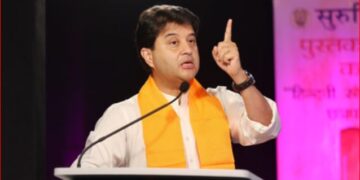The Supreme Court on Tuesday refused to hear a PIL related to the terrorist attack in Pahalgam in Jammu and Kashmir. The petition demanded that a fair and high -level inquiry into the attack should be conducted under the supervision of retired judges. The court rejected it by making strong comments on this petition.
A bench of Supreme Court Justice SA Nazir and Justice Krishna Murari reprimanded the petitioner and said that this is not the time to file a PIL. Realizing the seriousness of the case, the court made it clear that such petitions should be filed at the right time according to circumstances and time. Apart from this, the court also said that there is no need to investigate the facts presented by the petitioner in this case, and this petition does not cause any reasonable reason to bring it to the court.
What was the Pahalgam terrorist attack?
There was a terrorist attack in Pahalgam in Jammu and Kashmir at the end of 2023, targeting Indian security forces. Some soldiers were killed and many others were injured in this attack. The attack was followed by quick action by security forces and several members of the terrorist group were killed. However, this attack again exposed the issue of security across the country and questioned whether the security forces are getting adequate information and resources to prevent such attacks.
Supreme court stance
The Supreme Court, while hearing the PIL, made it clear that the intervention of the court in this case would be untimely. The court said that if some more evidence or new information related to this incident is revealed in future, then it will be considered to give instructions to the concerned agencies. The court believed that at this time, when investigation and action is going on, no intervention was required.
This decision has proved to be a major setback for the petitioner, who demanded an inquiry under the supervision of high judicial bodies to an impartial inquiry into the attack. The petitioner had argued that such an attack should be investigated with transparency and impartiality, so that any kind of mistake or negligence could be exposed.
Court opinion
The Supreme Court said in its decision that immediate legal intervention in such cases is not appropriate, until no concrete evidence or new information is revealed in the case. The court also said that the judiciary should sometimes avoid such petitions when the matter has not yet reached any conclusion and the investigation is going on.
However, the court also clarified that if a new situation related to the case arises in the future, the petitioners can again contact the court.






